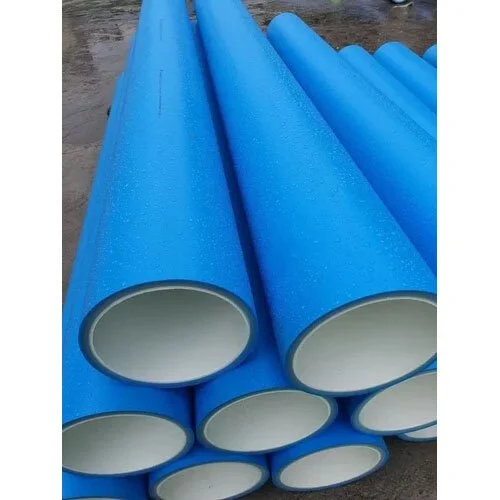Introduction
PPR (Polypropylene Random Copolymer) pipes ASTM F2389 have become a preferred choice in industrial pipe fittings due to their versatility. Durability, and resistance to harsh conditions. Their unique properties make them ideal for transporting various fluids, including water, chemicals, and gases, across industrial settings. This article explores the reasons behind the increasing preference for PPR pipes in industrial applications.
Key Reasons for the Preference of PPR Pipes in Industrial Pipe Fittings
- High Chemical Resistance
- One of the primary reasons PPR pipes are favored in industrial environments is their resistance to a wide range of chemicals. PPR pipes can withstand aggressive substances like acids, alkalis. And other corrosive materials, making them ideal for industries such as chemical processing, wastewater treatment, and manufacturing.
- Thermal Resistance
- PPR pipes can handle both high and low temperatures, withstanding temperatures up to 95°C (203°F). This makes them suitable for hot water systems, steam transport, and processes that involve heat, such as industrial heating and cooling systems. Additionally, PPR pipe retain their strength and flexibility even in freezing conditions. Further enhancing their reliability in a range of industrial applications.
Pressure Resistance
- Industrial systems often operate under high pressure, and PPR pipe are designed to handle this demand. With pressure ratings such as PN10, PN16, and PN20, PPR pipes can endure high-pressure conditions without cracking or leaking, making them suitable for industrial water supply, compressed air, and fluid transport.
- Corrosion-Free and Non-Toxic
- PPR pipes are non-corrosive, which ensures that the transported fluids remain uncontaminated. This is particularly important in industries such as food and beverage processing, pharmaceuticals. And water treatment, where maintaining fluid purity is essential. Additionally, the non-toxic nature of PPR makes it a safe option for systems that involve the transportation of potable water or other sensitive fluids.

Durability and Longevity
- PPR pipes are known for their durability and long service life. When installed properly, these pipes can last over 50 years, even in harsh industrial environments. Their resistance to abrasion, impact, and chemical degradation ensures that they require minimal maintenance. Reducing the cost of system repairs and replacements.
- Lightweight and Easy to Install
- PPR pipes are much lighter than traditional metal pipe. Such as steel or copper, making them easier to transport and install. The use of heat fusion welding for joints ensures leak-proof connections, which is critical in industrial applications. This ease of installation also reduces labor costs and downtime during system setup or maintenance.
Energy Efficiency
- PPR pipes have excellent insulation properties, which minimize heat loss in heating systems or hot water transport. This helps industries reduce energy consumption, resulting in cost savings over time. Additionally, the smooth inner surface of PPR pipe reduces friction, ensuring efficient fluid flow and reducing the energy needed for pumping.
- Eco-Friendly and Recyclable
- In today’s industrial landscape, sustainability is a key concern. PPR pipe are fully recyclable, making them an environmentally friendly choice. They also have a lower carbon footprint during production compared to metal pipes, contributing to greener industrial practices.
Industrial Applications of PPR Pipes
- Chemical and Petrochemical Industries: PPR pipe are ideal for transporting aggressive chemicals and gases. Thanks to their resistance to corrosion and chemical reactions.
- Water Treatment Plants: PPR pipe are frequently used in industrial water treatment facilities for transporting potable water, waste. Other fluids without contamination risks.
- HVAC Systems: In industrial heating, ventilation, and air conditioning systems. PPR pipes are used to transport hot and cold water due to their excellent thermal resistance and insulation properties.
- Compressed Air Systems: PPR pipe can handle the high pressure associated with compressed air systems. Making them suitable for various industrial applications requiring the transport of air or gases.
- Food and Beverage Industry: Given their non-toxic, corrosion-resistant properties. PPR pipes are commonly used to transport water and other fluids in food and beverage manufacturing facilities.
Conclusion
PPR pipes offer numerous advantages for industrial applications, including chemical and temperature resistance, durability, and ease of installation. Their ability to handle high pressures, resist corrosion, and provide long-lasting performance makes them a top choice in various industries. With the added benefit of being eco-friendly and cost-effective. PPR pipe continue to be a reliable solution for industrial pipe fittings.


















